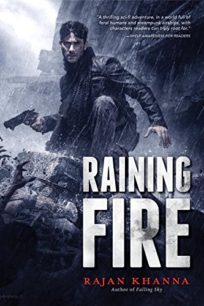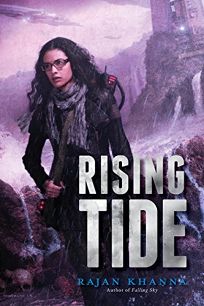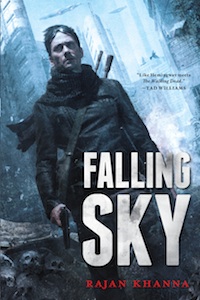Last night I went with some other theater enthusiasts to see Tom Stoppard’s brilliant play, Arcadia. It’s the kind of play you want to talk about after, over coffee, but I didn’t get the chance to do that so I guess I’ll just ramble a bit here.
While I loved A Brief Encounter, Arcadia might just be my favorite modern play of all time. Not that I’m an expert by any means, but Stoppard, in my mind, is a genius.
To those who don’t know it, the play alternates between two timeframes – taking place in one house in both 1810 and the present day. It’s a story about love and death, about art and science, poetry and mathematics, truth and perception, chaos theory and the heat death of the universe. Of God and Newton and Byron. It’s about all of these things and yet much more.
As the narrative unfolds we follow two distinct sets of characters who nonetheless begin a conversation with one another, particularly about maths and sciences, beauty and reality. Then plots unfold, gaining perspective in each other until the end brings them completely together in the end.
The performances were brilliant, I thought. Billy Crudup, whom most people will know was amazing as Bernard, the most unlikeable character in the play, and perhaps the most misguided, but not quite wrong. No one in the play is ever truly wrong. They all pose different questions, come from differing perspectives, but all of them seem valid in their own way. And one element that came across for me was that it wasn’t just any one belief system or philosophy that stood above the others, it was more about the balance.
Arcadia poses more questions than it answers, but then I think the best art does.
The play draws you in right from the start but the moment I fell in love with it was when Thomasina is sharing her disdain of Cleopatra and laments the loss of the Library at Alexandria, something I’ve done as well. It resonated for me. But Septimus, her tutor, responds with a beautiful passage about how nothing in art is ever truly lost, that we’re part of a continuum, hopeful message that says that there is always what we have and what will yet be.
“We shed as we pick up, like travellers who must carry everything in their arms, and what we let fall will be picked up by those behind. The procession is very long and life is very short. We die on the march. But there is nothing outside the march so nothing can be lost to it. The missing plays of Sophocles will turn up piece by piece, or be written again in another language. Ancient cures for diseases will reveal themselves once more. Mathematical discoveries glimpsed and lost to view will have their time again. You do not suppose, my lady, that if all of Archimedes had been hiding in the great library of Alexandria, we would be at a loss for a corkscrew?”
At one point I told myself that maybe I should give up writing. That while I aspire to such lofty heights of narrative and dialogue, I could never do it as well as this, weaving together so many ideas, playing concepts off of one another, melding comedy and tragedy so effortlessly. But then, I thought, this is something to aspire to. That’s the thing about the play – it’s inspiring and you can’t leave feeling down about creation or discovery, even if we all face entropy in the end.
I feel like I want to say more about it, but it’s hard if you haven’t seen it. And I don’t know if I’ve quite organized my thoughts about it completely yet.
If you get a chance to see it, do. It’s well worth your time.





 Rising Tide, the sequel to Falling Sky, was released on October 6, 2015.
Rising Tide, the sequel to Falling Sky, was released on October 6, 2015.  Falling Sky, my first novel, came out October 7, 2014 from Pyr. It's an adventure story set in a post-apocalyptic future with airships.
Falling Sky, my first novel, came out October 7, 2014 from Pyr. It's an adventure story set in a post-apocalyptic future with airships.